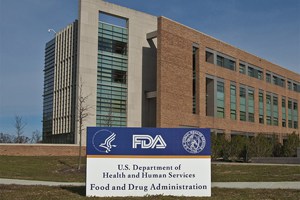 AbbVie has been handed FDA approval for its new all-oral hepatitis C treatment Viekira Pak as it looks to go head-to-head with Gilead in an increasingly competitive but highly lucrative market.
AbbVie has been handed FDA approval for its new all-oral hepatitis C treatment Viekira Pak as it looks to go head-to-head with Gilead in an increasingly competitive but highly lucrative market.
The drug is now licensed in the US to treat patients with chronic hepatitis C virus (HCV) genotype 1 infection, including those with a type of advanced liver disease called cirrhosis.
Viekira Pak contains three new drugs: ombitasvir, paritaprevir and dasabuvir, which work together to inhibit the growth of HCV.
It also contains ritonavir, a previously approved drug from AbbVie, which is used to increase blood levels of paritaprevir. Viekira Pak can be used with or without Roche’s injectable drug Copegus (ribavirin), meaning it can be an all-oral regimen, although some patients will need to take Copegus with the regimen.
But the FDA has not, however, recommended the drug for patients whose liver is unable to function properly (a condition known as decompensated cirrhosis).
The new treatment has a proven cure rate of more than 90% in people with the most common subtype of hepatitis C in the US, genotype 1, in clinical trials.
Analysts have long been waiting for AbbVie to be given US approval for this drug as the firm is directly pitting itself against fellow US firm Gilead for a share in the market for a new generation of hep C treatments.
Gilead gained US approval for Sovaldi (sofosbuvir) at the start of the year – although this treatment must be used in conjunction with Copegus for the drug to work.
It quickly became the fastest-selling medicine in the world, making more than $8.5bn in its first three quarters.
Gilead has also been working on a new medicine called Harvoni that, like Viekira Pak, does not require the use of any injectable medicines, making it easier for patients to use.
Harvoni combines Sovaldi, a nucleotide analog polymerase inhibitor, with its new NS5A inhibitor ledipasvir. It has shown cure rates of up to 98% in recent clinical trials, and is expected to bring in even more revenue than Sovaldi next year.
Harvoni was approved in the US in October and recently recommended by the EMA’s drug advisory body the CHMP, meaning it should be on the market in the EU by early 2015.
The spectre of pricing
Price has however remained a major issue, with Sovaldi costing $84,000 (£53,600) for a full 12-week course of treatment and an additional cost of around $8,000 needed to fund the use of Copegus. Harvoni, meanwhile, comes with a $94,500 price tag.
This has caused consternation among US insurers and patients, who have to make co-payments for the drug, with US politicians also decrying its high price.
In fact Gilead is currently being sued in the US over Sovaldi’s by the Southeastern Pennsylvania Transportation Authority (SEPTA), in what will at the very least be a piece of bad PR for the company.
Aware of this and the growing market, AbbVie has priced its new medicine 12% lower than Harvoni and fractionally lower than Sovaldi at $83,319 per patient for a standard 12-week treatment.
AbbVie says that the price reflects the effectiveness of the regimen and market dynamics, and should ensure ‘broad access’ to the product.
Analysts have expected Harvoni to dominate the market, but the lower price may tempt many to switch over to AbbVie’s treatment. Harvoni does still, however, have the best efficacy profile.
This is why Viekira Pak is expected to generate just shy of $3bn in sales next year, according to the average of three analysts’ estimates compiled by financial specialists at Bloomberg – an impressive sum but still well below the $10bn-plus expected for Harvoni.
This will however still help steer AbbVie into a more secure future after its recent split from Abbott, and also help wean itself off from an over-reliance on the auto-inflammatory drug Humira (adalimumab), which is currently the biggest-selling medicine in the world, but is soon to face threats from biosimilars.
Part of AbbVie’s new combination treatment comes from a research collaboration with Enanta Pharmaceuticals, while the other two new drugs were developed at the firm as part of a hepatitis C research programme dating back to 2002.
Hepatitis C is a viral disease that causes inflammation of the liver that can lead to reduced liver function, liver failure or liver cancer.
Most people infected with HCV have no symptoms of the disease until liver damage becomes apparent, which may take decades. According to the Centers for Disease Control and Prevention, about 3.2 million Americans are infected with HCV, and without proper treatment, 15-30 per cent of these people will go on to develop cirrhosis.




